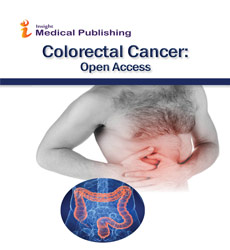Molecular epidemiology of Oesophageal Squamous Cell ; a Comparative Study of Kenya and South Africa
Peris Wambugu
Jomo Kenyatta University of agriculture and technology, Kenya
Received Date: 2022-05-13 | Accepted Date: 2022-05-20 | Published Date: 2022-05-27Abstract
Received Date: May 13, 2022 Accepted Date: May 20, 2022 Published Date: May 27, 2022
Oesophageal cancer ranks sixth in incidence and fifth in mortality globally with a significantly high proportion of young patients with the disease have been reported in developing countries. Kenya and South Africa have reported a high incidence and mortality due to oesophageal squamous cell carcinoma (OSCC) whose aetiology remains inconclusive and multiple factors including environmental exposures are believed to play important roles. Despite the high prevalence and mortality in Kenya, no systematic or genome-wide sequencing studies have been done on this type of tumour and very little is known about the molecular and genetic aberrations in OSCC in Kenya. The study proposes to determine the molecular epidemiology of OSCC and assess the risk factors, the common gene polymorphisms and genetic mutations in Kenyan cases. The results will be compared with South Africa OSCC published data in silico to assess their similarities if any. Kenyan OSCC biopsies shall be collected from Nairobi, Muranga and Machakos Counties and transported to JKUAT laboratory from where DNA shall be extracted from matched normal and tumour biopsies as well as blood. The processed DNA will be packaged and stored for transportation to South Africa where whole genome sequencing will be carried out. Somatic mutations will be determined in genomic DNA. The sequence data will be analysed using bioinformatics tools developed at the Cancer Genome Project. Comprehensive bioinformatics algorithms for the identification of putative genomic rearrangements will be used from massively parallel paired-end sequencing that will help in mapping of the sequence reads and pairing of the two ends using the BWA algorithm. The benefits of the study will be detection of mutation signatures. The study will also help to associate mutation signatures with carcinogen exposure in the environment and finally test the specific mutations/ exposures and outcomes in response to treatment of OSCC in collaboration with GlaxoSmithKline pharmaceutical company.
Open Access Journals
- Aquaculture & Veterinary Science
- Chemistry & Chemical Sciences
- Clinical Sciences
- Engineering
- General Science
- Genetics & Molecular Biology
- Health Care & Nursing
- Immunology & Microbiology
- Materials Science
- Mathematics & Physics
- Medical Sciences
- Neurology & Psychiatry
- Oncology & Cancer Science
- Pharmaceutical Sciences
